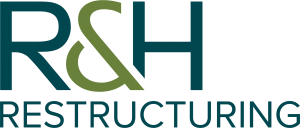Forensic and Advisory Solutions: A Comprehensive Guide for Stakeholders and Directors
Forensic accounting can reveal hidden assets and sources of income, especially if a company or entity is experiencing periods of distress, litigation or dealing with other contentious issues.
This guide is intended to provide a breakdown of how to identify when your business may benefit from forensic accountancy solutions.
What is Forensic Accounting?
Forensic accounting is a combination of accounting and investigative techniques used to discover financial crimes or unauthorised activity within a business or entity. These investigations can involve the reconstruction of accounting information, a review of books and records, or asset tracing on a broad scale (including multi-jurisdictional assignments that support complex legal cases).
What do Forensic Accountants Do?
Forensic accountants trace funds, identify assets, conduct asset recovery exercises, and perform due diligence reviews. They can provide third party oversight which can be beneficial in providing transparency and comfort to stakeholders. Particularly in situations where a company might be experiencing financial difficulty or potential liquidity issues.
When does a company need Forensic Accounting?
There are a number of red flags which might indicate a need for forensic accountancy support, including when there are suspicions of fraud or other illegalities such as money laundering, bribery and corruption or when a company is starting to lose liquidity without any reasonable explanation.
How Do Forensic Accountants trace hidden Assets and Funds?
Proving that an entity has unreported income is one thing. Tracing that income to assets or accounts that can be used to support a claim or enforce a judgment is another story, particularly when assets are actively being concealed.
To uncover hidden assets, forensic accountants examine a variety of documents, including tax returns, bank records, real estate records, insurance policies and court filings. They can also utilise intermediary bank discovery, debt enforcement or asset tracing to recreate the financial history, even if funds have been transferred internationally.
Why would litigation support be necessary?
When an entity has identified that fraud or other illegal activity is occurring in their business, these situations can quickly become contentious or cause distress. When it comes time to prepare for litigation there will be a substantial amount of information that needs to be examined and presented to the court in a short space of time. Having the documentation generated through targeted searches and analysed to highlight relevant facts and findings will be beneficial during any litigation process.
When is the best time to get forensic and advisory solutions for a company?
Ideally stakeholders should reach out for assistance at the earliest sign of any red flags being identified be it suspicions of fraud or other illegalities or unexplained liquidity issues. This early action can give forensic accountants the ability to identify issues early allowing for preventative action to be taken to mitigate the potential damages to the company and stakeholders. Unfortunately, it is often the case that stakeholders reach out for assistance at the crisis stage. By this point the layers of asset dissipation and the complexity of forensic investigations and recovery activities required to recover losses may be many times greater than had an early intervention and identification of the issues been achieved.
Early action allows R&H Restructuring’s multidisciplinary team the ability to quickly assess a situation and to implement mitigation and recovery actions to minimise losses. With offices in the Cayman Islands and British Virgin Islands coupled with our global network, we are able to rapidly deploy our experts as any situation may require in order to protect and recover value for stakeholders.
Reach out to us today if your business is in need of forensic and advisory solutions.




